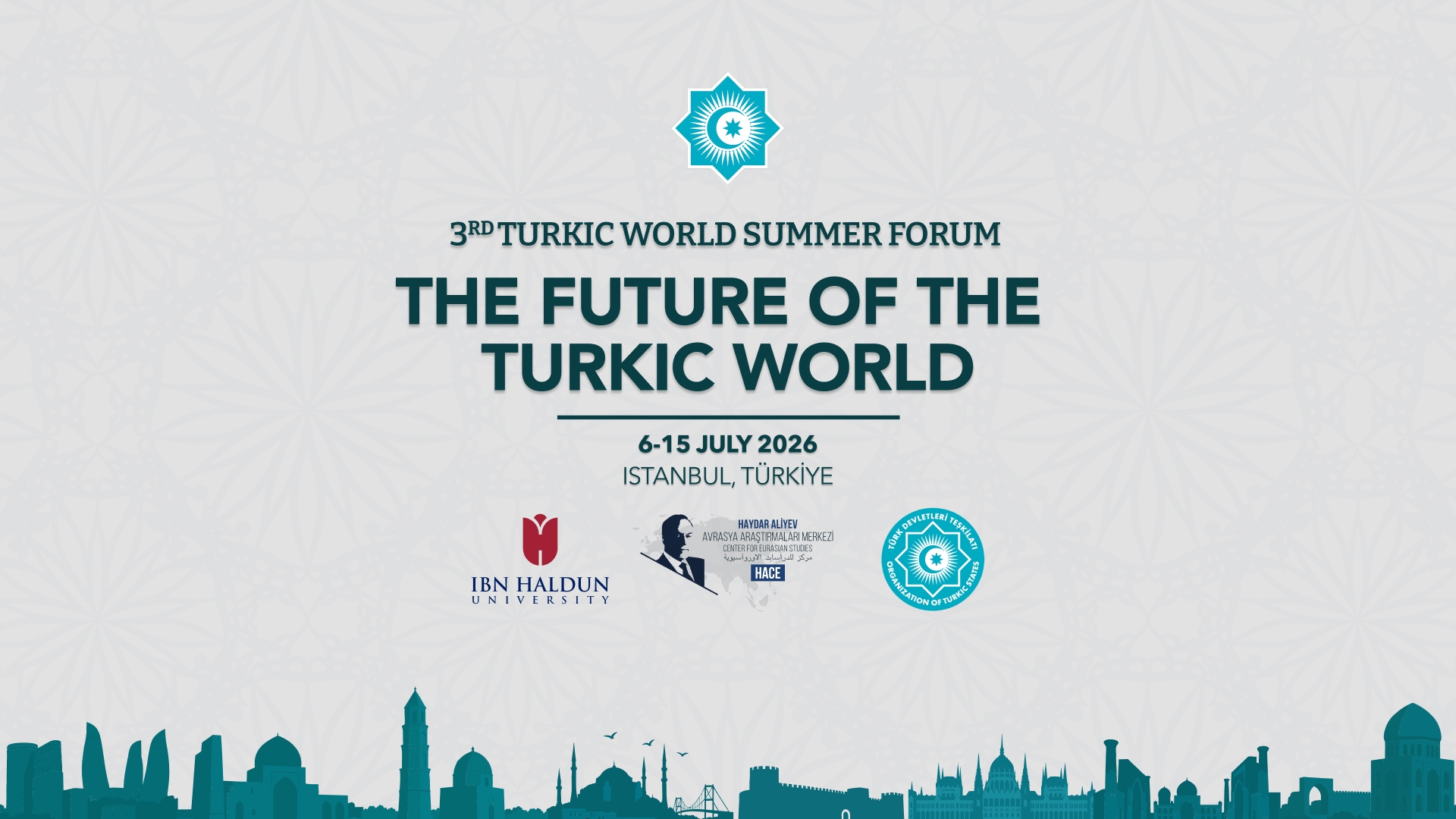


In an era marked by shifting global dynamics, regional cooperation, and identity-based partnerships have become essential mechanisms for stability, peace, and progress. The Turkic World, uniting diverse states and societies from the Balkans to Central Asia, has emerged as a vital regional actor, contributing to global peace, connectivity, and development.
Recent geopolitical challenges have underscored the need for deeper collaboration among Turkic nations through shared institutions and cultural linkages. Building upon this vision, the Third Turkic World Summer Forum, themed “The Future of the Turkic World” invites scholars, practitioners, and students to engage in an interdisciplinary dialogue on the evolving political, economic, cultural, and technological landscape of the Turkic region. We held two Turkic World Summer Schools in 2024 and 2025, respectively. Beginning in 2026, the Turkic World Summer School will be renamed the Turkic World Summer Forum.
Following the success of the First and Second Turkic World Schools organized by Ibn Haldun University, this year’s Forum aims to consolidate academic exchange, foster research networks, and promote policy-oriented discussions on sustainable cooperation within the framework of the Organization of Turkic States (OTS) and other regional mechanisms.